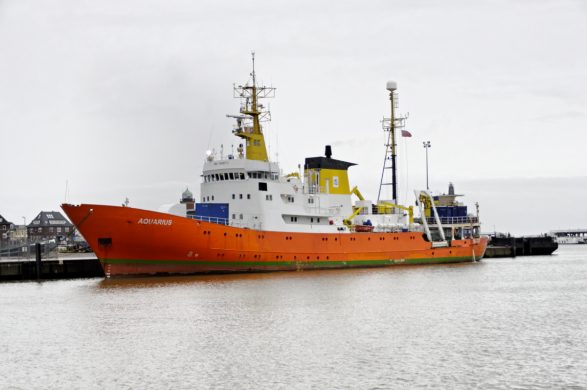GENEVA, 6 November, 2018 (UNHCR): Some 17 people have been found dead this week off the Spanish coast, meaning that the number of lives lost on the Mediterranean this year has now exceeded 2000. UNHCR, the UN Refugee Agency has called repeatedly for urgent action to address this situation. The Mediterranean has for several years been the world’s deadliest sea route for refugees and migrants. That it continues to be so, should be unacceptable to all, says Charlie Yaxley, spokesman for UNHCR in Geneva.
Around 105,000 asylum seekers and migrants have reached Europe so far this year, representing a return to pre-2014 levels. However, the 2000 drownings mean that the rate of deaths, particularly in the Central Mediterranean, has escalated sharply. In September, one life was lost for every eight people who crossed. This was in large part due to substantially reduced search and rescue capacity.
Restriktioner for NGO-skibe
In light of this, UNHCR continues to be very concerned about the legal and logistical restrictions that have been placed on a number of NGOs wishing to conduct search and rescue operations, including the Aquarius. These have had the cumulative effect of the Central Mediterranean currently having no NGO vessels conducting SAR.
Should NGO rescue operations on the Mediterranean cease entirely we risk returning to the same dangerous context we saw after Italy’s Mare Nostrum naval operation ended in 2015 and hundreds of people died in an incident off the coast of Lampedusa.
UNHCR welcomes the rescue efforts of the Libyan Coast Guard (LCG) as without them, more lives would have been lost. Nonetheless, with the LCG now having assumed primary responsibility for search and rescue coordination in an area that extends to around 100 miles, the LCG needs further support. Any vessel with the capability to assist search and rescue operations should be allowed to come to the aid of those in need.
Libyen er ikke et sikkert sted
UNHCR reiterates that people rescued in international waters (i.e. beyond the 12 nautical miles of the territorial waters of Libya) should not be brought back to Libya where conditions are not safe.
The largest proportion of deaths have been reported in crossings to Italy which account for more than half of all deaths reported this year so far, despite Spain having become the primary destination of those newly arrived. More than 47, 000 people have arrived there by sea, compared to around 21,880 in Italy and 26,789 in Greece.
There is an urgent need to break away from the current impasses and ad-hoc boat-by-boat approaches on where to dock rescued passengers. UNHCR reiterates that in recent months, together with IOM, we have offered a regional solution that would provide clarity and predictability on search and rescue operations.
UNHCR also reiterates its call for the international community to address the root causes of displacement and drivers of onward movement that are forcing people to take increasingly dangerous and perilous journeys.















